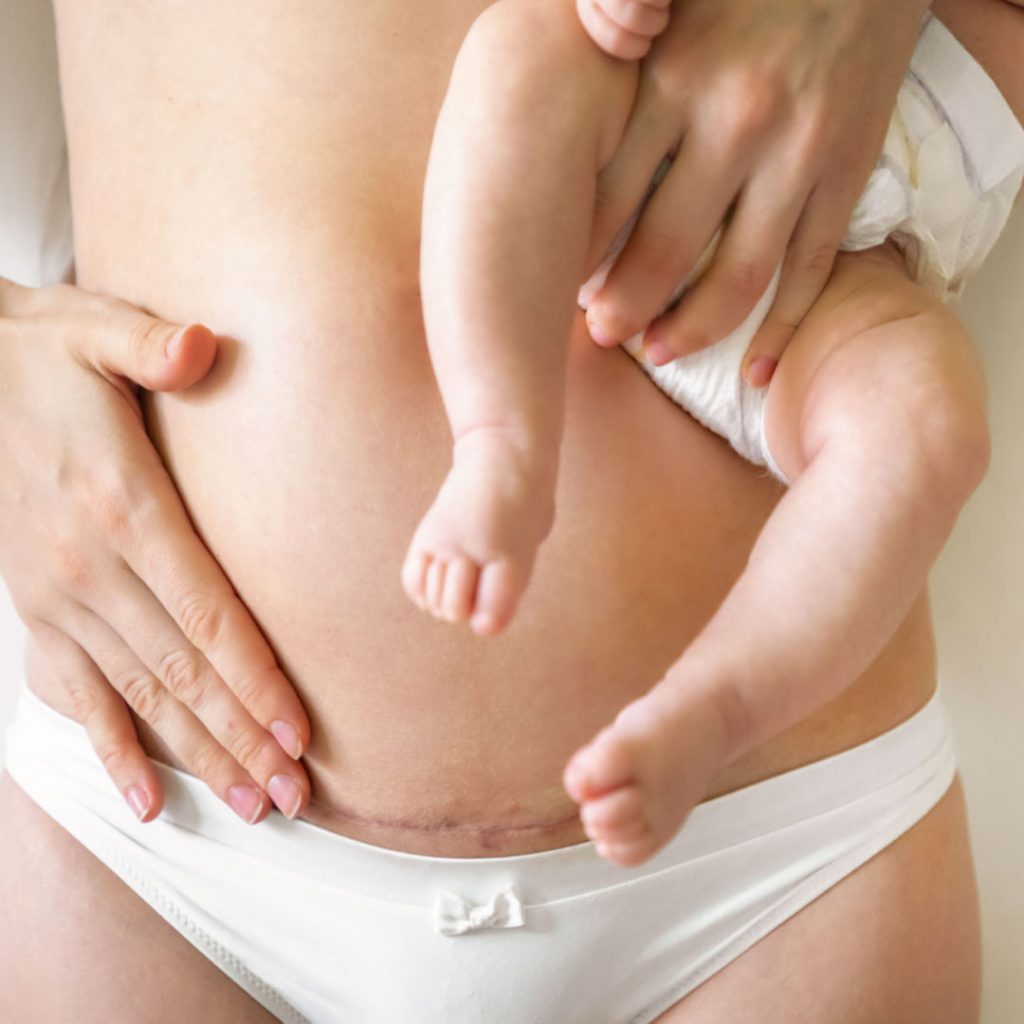It’s common for new mothers to focus on losing weight after having their baby. Social media doesn’t help to create impossible expectations of returning quickly to pre-pregnancy shape and size. But the reality is that losing too much weight, too quickly after childbirth can compromise a new mother’s health and well-being. And if she is breastfeeding, calorie restriction can also reduce breast milk supply.

Losing weight after having a baby is a little different to weight loss at other life stages. New mothers have many things to focus on – recovering from childbirth, adjusting to parenting, getting to know their new baby and managing exhaustion and sleep deprivation. Looking for quick and tasty ‘comfort’ food often becomes the priority in the early weeks and months after having a baby.
Give yourself at least six weeks to recover from your baby’s birth and find a little balance in your new life.
Ten top weight loss tips for new mothers
- Be realistic about how much you want to lose. An average loss of around 500 grams/week is generally healthy and maintainable. Extreme weight loss is not sustainable at any stage of life.
- Some women who are breastfeeding don’t lose weight until they stop. However, it’s common for breastfeeding mothers to lose pregnancy weight more quickly than women who don’t breastfeed.
- Breastfeeding can generate a big increase in hunger and it’s common to crave sugar, especially in the late afternoon when energy is low. Allow yourself some occasional treats and don’t try to be ‘good’ all the time. It’s important you don’t feel you’re being deprived.
- It can help to avoid temptation by not having processed or treat foods in the house. Getting out with a baby takes on another dimension of planning, so you may feel it’s too much effort to get to the shops if you have a craving for something sweet.
- Most women take from 6 – 12 months to lose pregnancy weight, though some take less and others longer. Every new mother is an individual.
- Pre-pregnancy weight can be a guide for healthy weight before conceiving and weight gain in pregnancy. Check your Body Mass Index (BMI).
- Make the decision to eat a healthy and nutritious diet most of the time. What works for many women is to eat ‘clean’ from Monday-Friday and be a bit more relaxed about their diet on the weekends.
- Try to do some type of exercise every day. Aim for a 30-minute walk and take your baby in their pram or in a carrier. If you include some hills, you’ll be burning extra kilojoules.
- Drink plenty of water and avoid drinking soft drinks and juice. Water with a squeeze of fresh lemon or lime juice, soda water or low kilojoule cordial of diet soda drinks are reasonable alternatives.
- Eat plenty of fresh fruits, vegetables, lean meat and dairy foods. Protein and iron rich foods will help to satisfy your hunger so you’ll be less prone to snacking. Nuts and chick peas, multi-grain crackers and cheese and even a bowl of rolled oats or good quality cereal are healthy in-between meal snacks if you’re hungry.
What else can help?
- Avoid following extreme or fad diets. These tend not to work in the long term and can actually increase the risk of gaining even more weight after initial weight loss.
- Increase your intake of unprocessed, ‘real’ food. Simple food which has not been modified too much is often the most nutritious.
- Speak with a dietician about your options. They are health professionals with specialised skills and training in what dietary changes make the most difference.
Written for Sudocrem by Jane Barry, Midwife and Child Health Nurse, May 2022.

